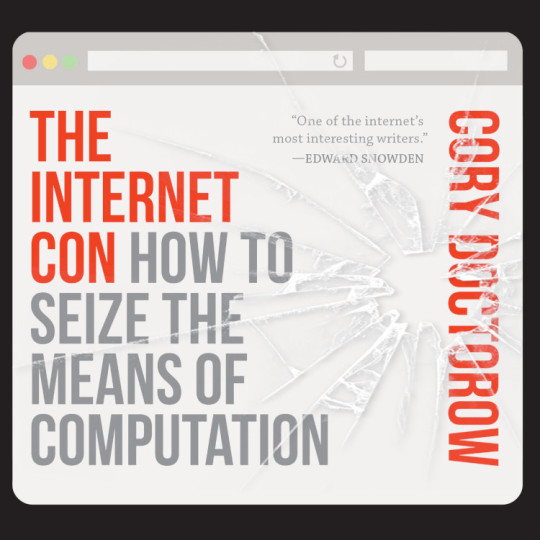#Computer Speech
Explore tagged Tumblr posts
Text
Old Synth sings the star spangled banner
youtube
(Not my video but pretty cool)
Also a fun fact: S.A.M here was actually the predecessor to Mac’s TTS family
2 notes
·
View notes
Text
Seeing as I have read every Metonic Fic everywhere to the point that I have a majority of them memorized.. I had to make my own again.
Essentially a Metonic Fanfic that starts in a museum and has Metal Sonic being a cool robot and it also includes a future setting and clones!
Enjoy.
#fanfiction writer#writing#sonic the hedgehog#sonic#Metal Sonic#metal sonic my beloved#shadow the hedgehog#miles tails prower#future#clones#Robot Noises#Computer Speech
4 notes
·
View notes
Text



(click for better quality! 🖥️)
pt.1 pt.3 pt.4
i love bratty computers breathe if u agree <3
this is a little long, so continue reading below! :3












#OK SO#i mentioned this was based off a real event in a prev post#lemme explain:#so the other night i had a ramune for the first time and this exact scenario happened where it fucking burst everywhere#at first i thought it was just a little but then i kept finding sticking spots on my desk#so i just cleaned the entire thing#NV (my laptop) was in my school bag when this happened so she didnt get effect teehee#the white of the speech bubbles look pink on this bg and its pissing me off#also i feel like i should start sketching these out because ough#i need a better plan for making these i just be rawdogging them#yet again another big ass canvas 1112 x 5788 exactly ouuughh#i also rlly like when computers use emoticons/emojis to express emotions AAAHH!!#anyways i hope yall enjoy this im rlly proud of it teehe!!!#kiid.art#digital art#medibang paint#clip studio paint#no ocs#original art#artists on tumblr#technophilia#techum#objectphilia#objectum#robot fucker#mini comic#computer#was typing the tags and for some reason limbus company came up...???
545 notes
·
View notes
Text
Forcing your computer to rat you out

Powerful people imprisoned by the cluelessness of their own isolation, locked up with their own motivated reasoning: “It’s impossible to get a CEO to understand something when his quarterly earnings call depends on him not understanding it.”
Take Mark Zuckerberg. Zuckerberg insists that anyone who wanted to use a pseudonym online is “two-faced,” engaged in dishonest social behavior. The Zuckerberg Doctrine claims that forcing people to use their own names is a way to ensure civility. This is an idea so radioactively wrong, it can be spotted from orbit.
From the very beginning, social scientists (both inside and outside Facebook) told Zuckerberg that he was wrong. People have lots of reasons to hide their identities online, both good and bad, but a Real Names Policy affects different people differently:
https://memex.craphound.com/2018/01/22/social-scientists-have-warned-zuck-all-along-that-the-facebook-theory-of-interaction-would-make-people-angry-and-miserable/
For marginalized and at-risk people, there are plenty of reasons to want to have more than one online identity — say, because you are a #MeToo whistleblower hoping that Harvey Weinstein won’t sic his ex-Mossad mercenaries on you:
https://www.newyorker.com/news/news-desk/harvey-weinsteins-army-of-spies
Or maybe you’re a Rohingya Muslim hoping to avoid the genocidal attentions of the troll army that used Facebook to organize — under their real, legal names — to rape and murder you and everyone you love:
https://www.amnesty.org/en/latest/news/2022/09/myanmar-facebooks-systems-promoted-violence-against-rohingya-meta-owes-reparations-new-report/
But even if no one is looking to destroy your life or kill you and your family, there are plenty of good reasons to present different facets of your identity to different people. No one talks to their lover, their boss and their toddler in exactly the same way, or reveals the same facts about their lives to those people. Maintaining different facets to your identity is normal and healthy — and the opposite, presenting the same face to everyone in your life, is a wildly terrible way to live.
None of this is controversial among social scientists, nor is it hard to grasp. But Zuckerberg stubbornly stuck to this anonymity-breeds-incivility doctrine, even as dictators used the fact that Facebook forced dissidents to use their real names to retain power through the threat (and reality) of arrest and torture:
https://pluralistic.net/2023/01/25/nationalize-moderna/#hun-sen
Why did Zuck cling to this dangerous and obvious fallacy? Because the more he could collapse your identity into one unitary whole, the better he could target you with ads. Truly, it is impossible to get a billionaire to understand something when his mega-yacht depends on his not understanding it.
This motivated reasoning ripples through all of Silicon Valley’s top brass, producing what Anil Dash calls “VC QAnon,” the collection of conspiratorial, debunked and absurd beliefs embraced by powerful people who hold the digital lives of billions of us in their quivering grasp:
https://www.anildash.com/2023/07/07/vc-qanon/
These fallacy-ridden autocrats like to disguise their demands as observations, as though wanting something to be true was the same as making it true. Think of when Eric Schmidt — then the CEO of Google — dismissed online privacy concerns, stating “If you have something that you don’t want anyone to know, maybe you shouldn’t be doing it in the first place”:
https://www.eff.org/deeplinks/2009/12/google-ceo-eric-schmidt-dismisses-privacy
Schmidt was echoing the sentiments of his old co-conspirator, Sun Microsystems CEO Scott McNealy: “You have zero privacy anyway. Get over it”:
https://www.wired.com/1999/01/sun-on-privacy-get-over-it/
Both men knew better. Schmidt, in particular, is very jealous of his own privacy. When Cnet reporters used Google to uncover and publish public (but intimate and personal) facts about Schmidt, Schmidt ordered Google PR to ignore all future requests for comment from Cnet reporters:
https://www.cnet.com/tech/tech-industry/how-cnet-got-banned-by-google/
(Like everything else he does, Elon Musk’s policy of responding to media questions about Twitter with a poop emoji is just him copying things other people thought up, making them worse, and taking credit for them:)
https://www.theverge.com/23815634/tesla-elon-musk-origin-founder-twitter-land-of-the-giants
Schmidt’s actions do not reflect an attitude of “If you have something that you don’t want anyone to know, maybe you shouldn’t be doing it in the first place.” Rather, they are the normal response that we all have to getting doxed.
When Schmidt and McNealy and Zuck tell us that we don’t have privacy, or we don’t want privacy, or that privacy is bad for us, they’re disguising a demand as an observation. “Privacy is dead” actually means, “When privacy is dead, I will be richer than you can imagine, so stop trying to save it, goddamnit.”
We are all prone to believing our own bullshit, but when a tech baron gets high on his own supply, his mental contortions have broad implications for all of us. A couple years after Schmidt’s anti-privacy manifesto, Google launched Google Plus, a social network where everyone was required to use their “real name.”
This decision — justified as a means of ensuring civility and a transparent ruse to improve ad targeting — kicked off the Nym Wars:
https://epeus.blogspot.com/2011/08/google-plus-must-stop-this-identity.html
One of the best documents to come out of that ugly conflict is “Falsehoods Programmers Believe About Names,” a profound and surprising enumeration of all the ways that the experiences of tech bros in Silicon Valley are the real edge-cases, unreflective of the reality of billions of their users:
https://www.kalzumeus.com/2010/06/17/falsehoods-programmers-believe-about-names/
This, in turn, spawned a whole genre of programmer-fallacy catalogs, falsehoods programmers believe about time, currency, birthdays, timezones, email addresses, national borders, nations, biometrics, gender, language, alphabets, phone numbers, addresses, systems of measurement, and, of course, families:
https://github.com/kdeldycke/awesome-falsehood
But humility is in short supply in tech. It’s impossible to get a programmer to understand something when their boss requires them not to understand it. A programmer will happily insist that ordering you to remove your “mask” is for your own good — and not even notice that they’re taking your skin off with it.
There are so many ways that tech executives could improve their profits if only we would abandon our stubborn attachment to being so goddamned complicated. Think of Netflix and its anti-passsword-sharing holy war, which is really a demand that we redefine “family” to be legible and profitable for Netflix:
https://pluralistic.net/2023/02/02/nonbinary-families/#red-envelopes
But despite the entreaties of tech companies to collapse our identities, our families, and our online lives into streamlined, computably hard-edged shapes that fit neatly into their database structures, we continue to live fuzzy, complicated lives that only glancingly resemble those of the executives seeking to shape them.
Now, the rich, powerful people making these demands don’t plan on being constrained by them. They are conservatives, in the tradition of #FrankWilhoit, believers in a system of “in-groups whom the law protects but does not bind, alongside out-groups whom the law binds but does not protect”:
https://crookedtimber.org/2018/03/21/liberals-against-progressives/#comment-729288
As with Schmidt’s desire to spy on you from asshole to appetite for his own personal gain, and his violent aversion to having his own personal life made public, the tech millionaires and billionaires who made their fortune from the flexibility of general purpose computers would like to end that flexibility. They insist that the time for general purpose computers has passed, and that today, “consumers” crave the simplicity of appliances:
https://memex.craphound.com/2012/01/10/lockdown-the-coming-war-on-general-purpose-computing/
It is in the War On General Purpose Computing that we find the cheapest and flimsiest rhetoric. Companies like Apple — and their apologists — insist that no one wants to use third-party app stores, or seek out independent repair depots — and then spend millions to make sure that it’s illegal to jailbreak your phone or get it fixed outside of their own official channel:
https://doctorow.medium.com/apples-cement-overshoes-329856288d13
The cognitive dissonance of “no one wants this,” and “we must make it illegal to get this” is powerful, but the motivated reasoning is more powerful still. It is impossible to get Tim Cook to understand something when his $49 million paycheck depends on him not understanding it.
The War on General Purpose Computing has been underway for decades. Computers, like the people who use them, stubbornly insist on being reality-based, and the reality of computers is that they are general purpose. Every computer is a Turing complete, universal Von Neumann machine, which means that it can run every valid program. There is no way to get a computer to be almost Turing Complete, only capable of running programs that don’t upset your shareholders’ fragile emotional state.
There is no such thing as a printer that will only run the “reject third-party ink” program. There is no such thing as a phone that will only run the “reject third-party apps” program. There are only laws, like the Section 1201 of the Digital Millennium Copyright Act, that make writing and distributing those programs a felony punishable by a five-year prison sentence and a $500,000 fine (for a first offense).
That is to say, the War On General Purpose Computing is only incidentally a technical fight: it is primarily a legal fight. When Apple says, “You can’t install a third party app store on your phone,” what they means is, “it’s illegal to install that third party app store.” It’s not a technical countermeasure that stands between you and technological self-determination, it’s a legal doctrine we can call “felony contempt of business model”:
https://locusmag.com/2020/09/cory-doctorow-ip/
But the mighty US government will not step in to protect a company’s business model unless it at least gestures towards the technical. To invoke DMCA 1201, a company must first add the thinnest skin of digital rights management to their product. Since 1201 makes removing DRM illegal, a company can use this molecule-thick scrim of DRM to felonize any activity that the DRM prevents.
More than 20 years ago, technologists started to tinker with ways to combine the legal and technical to tame the wild general purpose computer. Starting with Microsoft’s Palladium project, they theorized a new “Secure Computing” model for allowing companies to reach into your computer long after you had paid for it and brought it home, in order to discipline you for using it in ways that undermined its shareholders’ interest.
Secure Computing began with the idea of shipping every computer with two CPUs. The first one was the normal CPU, the one you interacted with when you booted it up, loaded your OS, and ran programs. The second CPU would be a Trusted Platform Module, a brute-simple system-on-a-chip designed to be off-limits to modification, even by its owner (that is, you).
The TPM would ship with a limited suite of simple programs it could run, each thoroughly audited for bugs, as well as secret cryptographic signing keys that you were not permitted to extract. The original plan called for some truly exotic physical security measures for that TPM, like an acid-filled cavity that would melt the chip if you tried to decap it or run it through an electron-tunneling microscope:
https://pluralistic.net/2020/12/05/trusting-trust/#thompsons-devil
This second computer represented a crack in the otherwise perfectly smooth wall of a computer’s general purposeness; and Trusted Computing proposed to hammer a piton into that crack and use it to anchor a whole superstructure that could observe — and limited — the activity of your computer.
This would start with observation: the TPM would observe every step of your computer’s boot sequence, creating cryptographic hashes of each block of code as it loaded and executed. Each stage of the boot-up could be compared to “known good” versions of those programs. If your computer did something unexpected, the TPM could halt it in its tracks, blocking the boot cycle.
What kind of unexpected things do computers do during their boot cycle? Well, if your computer is infected with malware, it might load poisoned versions of its operating system. Once your OS is poisoned, it’s very hard to detect its malicious conduct, since normal antivirus programs rely on the OS to faithfully report what your computer is doing. When the AV program asks the OS to tell it which programs are running, or which files are on the drive, it has no choice but to trust the OS’s response. When the OS is compromised, it can feed a stream of lies to users’ programs, assuring these apps that everything is fine.
That’s a very beneficial use for a TPM, but there’s a sinister flipside: the TPM can also watch your boot sequence to make sure that there aren’t beneficial modifications present in your operating system. If you modify your OS to let you do things the manufacturer wants to prevent — like loading apps from a third-party app-store — the TPM can spot this and block it.
Now, these beneficial and sinister uses can be teased apart. When the Palladium team first presented its research, my colleague Seth Schoen proposed an “owner override”: a modification of Trusted Computing that would let the computer’s owner override the TPM:
https://web.archive.org/web/20021004125515/http://vitanuova.loyalty.org/2002-07-05.html
This override would introduce its own risks, of course. A user who was tricked into overriding the TPM might expose themselves to malicious software, which could harm that user, as well as attacking other computers on the user’s network and the other users whose data were on the compromised computer’s drive.
But an override would also provide serious benefits: it would rule out the monopolistic abuse of a TPM to force users to run malicious code that the manufacturer insisted on — code that prevented the user from doing things that benefited the user, even if it harmed the manufacturer’s shareholders. For example, with owner override, Microsoft couldn’t force you to use its official MS Office programs rather than third-party compatible programs like Apple’s iWork or Google Docs or LibreOffice.
Owner override also completely changed the calculus for another, even more dangerous part of Trusted Computing: remote attestation.
Remote Attestation is a way for third parties to request a reliable, cryptographically secured assurances about which operating system and programs your computer is running. In Remote Attestation, the TPM in your computer observes every stage of your computer’s boot, gathers information about all the programs you’re running, and cryptographically signs them, using the signing keys the manufacturer installed during fabrication.
You can send this “attestation” to other people on the internet. If they trust that your computer’s TPM is truly secure, then they know that you have sent them a true picture of your computer’s working (the actual protocol is a little more complicated and involves the remote party sending you a random number to cryptographically hash with the attestation, to prevent out-of-date attestations).
Now, this is also potentially beneficial. If you want to make sure that your technologically unsophisticated friend is running an uncompromised computer before you transmit sensitive data to it, you can ask them for an attestation that will tell you whether they’ve been infected with malware.
But it’s also potentially very sinister. Your government can require all the computers in its borders to send a daily attestation to confirm that you’re still running the mandatory spyware. Your abusive spouse — or abusive boss — can do the same for their own disciplinary technologies. Such a tool could prevent you from connecting to a service using a VPN, and make it impossible to use Tor Browser to protect your privacy when interacting with someone who wishes you harm.
The thing is, it’s completely normal and good for computers to lie to other computers on behalf of their owners. Like, if your IoT ebike’s manufacturer goes out of business and all their bikes get bricked because they can no longer talk to their servers, you can run an app that tricks the bike into thinking that it’s still talking to the mothership:
https://nltimes.nl/2023/07/15/alternative-app-can-unlock-vanmoof-bikes-popular-amid-bankruptcy-fears
Or if you’re connecting to a webserver that tries to track you by fingerprinting you based on your computer’s RAM, screen size, fonts, etc, you can order your browser to send random data about this stuff:
https://jshelter.org/fingerprinting/
Or if you’re connecting to a site that wants to track you and nonconsensually cram ads into your eyeballs, you can run an adblocker that doesn’t show you the ads, but tells the site that it did:
https://www.eff.org/deeplinks/2019/07/adblocking-how-about-nah
Owner override leaves some of the beneficial uses of remote attestation intact. If you’re asking a friend to remotely confirm that your computer is secure, you’re not going to use an override to send them bad data about about your computer’s configuration.
And owner override also sweeps all of the malicious uses of remote attestation off the board. With owner override, you can tell any lie about your computer to a webserver, a site, your boss, your abusive spouse, or your government, and they can’t spot the lie.
But owner override also eliminates some beneficial uses of remote attestation. For example, owner override rules out remote attestation as a way for strangers to play multiplayer video games while confirming that none of them are using cheat programs (like aimhack). It also means that you can’t use remote attestation to verify the configuration of a cloud server you’re renting in order to assure yourself that it’s not stealing your data or serving malware to your users.
This is a tradeoff, and it’s a tradeoff that’s similar to lots of other tradeoffs we make online, between the freedom to do something good and the freedom to do something bad. Participating anonymously, contributing to free software, distributing penetration testing tools, or providing a speech platform that’s open to the public all represent the same tradeoff.
We have lots of experience with making the tradeoff in favor of restrictions rather than freedom: powerful bad actors are happy to attach their names to their cruel speech and incitement to violence. Their victims are silenced for fear of that retaliation.
When we tell security researchers they can’t disclose defects in software without the manufacturer’s permission, the manufacturers use this as a club to silence their critics, not as a way to ensure orderly updates.
When we let corporations decide who is allowed to speak, they act with a mixture of carelessness and self-interest, becoming off-the-books deputies of authoritarian regimes and corrupt, powerful elites.
Alas, we made the wrong tradeoff with Trusted Computing. For the past twenty years, Trusted Computing has been creeping into our devices, albeit in somewhat denatured form. The original vision of acid-filled secondary processors has been replaced with less exotic (and expensive) alternatives, like “secure enclaves.” With a secure enclave, the manufacturer saves on the expense of installing a whole second computer, and instead, they draw a notional rectangle around a region of your computer’s main chip and try really hard to make sure that it can only perform a very constrained set of tasks.
This gives us the worst of all worlds. When secure enclaves are compromised, we not only lose the benefit of cryptographic certainty, knowing for sure that our computers are only booting up trusted, unalterted versions of the OS, but those compromised enclaves run malicious software that is essentially impossible to detect or remove:
https://pluralistic.net/2022/07/28/descartes-was-an-optimist/#uh-oh
But while Trusted Computing has wormed its way into boot-restrictions — preventing you from jailbreaking your computer so it will run the OS and apps of your choosing — there’s been very little work on remote attestation…until now.
Web Environment Integrity is Google’s proposal to integrate remote attestation into everyday web-browsing. The idea is to allow web-servers to verify what OS, extensions, browser, and add-ons your computer is using before the server will communicate with you:
https://github.com/RupertBenWiser/Web-Environment-Integrity/blob/main/explainer.md
Even by the thin standards of the remote attestation imaginaries, there are precious few beneficial uses for this. The googlers behind the proposal have a couple of laughable suggestions, like, maybe if ad-supported sites can comprehensively refuse to serve ad-blocking browsers, they will invest the extra profits in making things you like. Or: letting websites block scriptable browsers will make it harder for bad people to auto-post fake reviews and comments, giving users more assurances about the products they buy.
But foundationally, WEI is about compelling you to disclose true facts about yourself to people who you want to keep those facts from. It is a Real Names Policy for your browser. Google wants to add a new capability to the internet: the ability of people who have the power to force you to tell them things to know for sure that you’re not lying.
The fact that the authors assume this will be beneficial is just another “falsehood programmers believe”: there is no good reason to hide the truth from other people. Squint a little and we’re back to McNealy’s “Privacy is dead, get over it.” Or Schmidt’s “If you have something that you don’t want anyone to know, maybe you shouldn’t be doing it in the first place.”
And like those men, the programmers behind this harebrained scheme don’t imagine that it will ever apply to them. As Chris Palmer — who worked on Chromium — points out, this is not compatible with normal developer tools or debuggers, which are “incalculably valuable and not really negotiable”:
https://groups.google.com/a/chromium.org/g/blink-dev/c/Ux5h_kGO22g/m/5Lt5cnkLCwAJ
This proposal is still obscure in the mainstream, but in tech circles, it has precipitated a flood of righteous fury:
https://arstechnica.com/gadgets/2023/07/googles-web-integrity-api-sounds-like-drm-for-the-web/
As I wrote last week, giving manufacturers the power to decide how your computer is configured, overriding your own choices, is a bad tradeoff — the worst tradeoff, a greased slide into terminal enshittification:
https://pluralistic.net/2023/07/24/rent-to-pwn/#kitt-is-a-demon
This is how you get Unauthorized Bread:
https://arstechnica.com/gaming/2020/01/unauthorized-bread-a-near-future-tale-of-refugees-and-sinister-iot-appliances/
All of which leads to the question: what now? What should be done about WEI and remote attestation?
Let me start by saying: I don’t think it should be illegal for programmers to design and release these tools. Code is speech, and we can’t understand how this stuff works if we can’t study it.
But programmers shouldn’t deploy it in production code, in the same way that programmers should be allowed to make pen-testing tools, but shouldn’t use them to attack production systems and harm their users. Programmers who do this should be criticized and excluded from the society of their ethical, user-respecting peers.
Corporations that use remote attestation should face legal restrictions: privacy law should prevent the use of remote attestation to compel the production of true facts about users or the exclusion of users who refuse to produce those facts. Unfair competition law should prevent companies from using remote attestation to block interoperability or tie their products to related products and services.
Finally, we must withdraw the laws that prevent users and programmers from overriding TPMs, secure enclaves and remote attestations. You should have the right to study and modify your computer to produce false attestations, or run any code of your choosing. Felony contempt of business model is an outrage. We should alter or strike down DMCA 1201, the Computer Fraud and Abuse Act, and other laws (like contract law’s “tortious interference”) that stand between you and “sole and despotic dominion” over your own computer. All of that applies not just to users who want to reconfigure their own computers, but also toolsmiths who want to help them do so, by offering information, code, products or services to jailbreak and alter your devices.
Tech giants will squeal at this, insisting that they serve your interests when they prevent rivals from opening up their products. After all, those rivals might be bad guys who want to hurt you. That’s 100% true. What is likewise true is that no tech giant will defend you from its own bad impulses, and if you can’t alter your device, you are powerless to stop them:
https://pluralistic.net/2022/11/14/luxury-surveillance/#liar-liar
Companies should be stopped from harming you, but the right place to decide whether a business is doing something nefarious isn’t in the boardroom of that company’s chief competitor: it’s in the halls of democratically accountable governments:
https://www.eff.org/wp/interoperability-and-privacy
So how do we get there? Well, that’s another matter. In my next book, The Internet Con: How to Seize the Means of Computation (Verso Books, Sept 5), I lay out a detailed program, describing which policies will disenshittify the internet, and how to get those policies:
https://www.versobooks.com/products/3035-the-internet-con
Predictably, there are challenges getting this kind of book out into the world via our concentrated tech sector. Amazon refuses to carry the audio edition on its monopoly audiobook platform, Audible, unless it is locked to Amazon forever with mandatory DRM. That’s left me self-financing my own DRM-free audio edition, which is currently available for pre-order via this Kickstarter:
http://seizethemeansofcomputation.org

I’m kickstarting the audiobook for “The Internet Con: How To Seize the Means of Computation,” a Big Tech disassembly manual to disenshittify the web and bring back the old, good internet. It’s a DRM-free book, which means Audible won’t carry it, so this crowdfunder is essential. Back now to get the audio, Verso hardcover and ebook:
https://www.kickstarter.com/projects/doctorow/the-internet-con-how-to-seize-the-means-of-computation

If you’d like an essay-formatted version of this post to read or share, here’s a link to it on pluralistic.net, my surveillance-free, ad-free, tracker-free blog:
https://pluralistic.net/2023/08/02/self-incrimination/#wei-bai-bai

[Image ID: An anatomical drawing of a flayed human head; it has been altered to give it a wide-stretched mouth revealing a gadget nestled in the back of the figure's throat, connected by a probe whose two coiled wires stretch to an old fashioned electronic box. The head's eyes have been replaced by the red, menacing eye of HAL 9000 from Stanley Kubrick's '2001: A Space Odyssey.' Behind the head is a code waterfall effect as seen in the credits of the Wachowskis' 'The Matrix.']

Image: Cryteria (modified) https://commons.wikimedia.org/wiki/File:HAL9000.svg
CC BY 3.0 https://creativecommons.org/licenses/by/3.0/deed.en
#pluralistic#chaffing#spoofing#remote attestation#rene descartes#adversarial interoperability#war on general purpose computing#canvas attacks#vpns#compelled speech#onion routing#owner override#stalkerware#ngscb#palladium#trusted computing#secure enclaves#tor#interop#net neutrality#taking the fifth#right to remain silent#real names policy#the zuckerberg doctrine#none of your business#the right to lie#right to repair#bossware#spyware#wei web environment integrity
2K notes
·
View notes
Text



Colin startled Tony out once and his hair has been curly ever since /silly
#jumey’s speech#dhmis#tony the talking clock#colin the computer#he looked too boxy to be a 🕰️#but im just gonna say his hair never recovered
52 notes
·
View notes
Text
disability as a deterrant aside, it is Really interesting to me how many people who want to get into writing just. do not want to read. at that point you have to ask yourself do you actually want to write, or do you just have a story in your head you want to get out, because there are multiple different mediums for that. you could do black out poetry honestly
#when i started planning a story of mine i wanted to get serious about#i immediately had to sit down and add like a shit ton of books (fiction and nonfiction) i#id have to read to nail to tone and style and world im going for#reading to write feels. inevitable why try to worm your way out of it#and AGAIN. if you bring up adhd or dylsexia or whatever the fuck i will point to the FIRST PHRASE in this post#having difficulty reading ≠ not wanting to read but one can affect the other#i find it Very had to read now without aids like plugging it into speech to text or finding an audibook#or literally leaving my phone and computer in another room and locking myself in a quiet space until ive finished#in dead silence#isolating chamber-ing myself to read a book is not normal. i used to never have to do this i want meda#meds#but you GOTTA find a work around if you want to write
31 notes
·
View notes
Text
so I just haven’t said anything to any of my grandparents about being on T. I know I’ll have to eventually but for now I just haven’t felt the need to explain anything.
so my grandfather called the other night and said hello. I greeted him as normal except didn’t say ‘papa’ (not deliberately, it’s just what came out of my mouth) and he was a bit hesitant, saying “I’m… I’m not sure if I have the right number, honestly”. I laughed as I realized that he didn’t recognize my voice, and said “oh! it’s me, papa!”.
he seemed relieved and still slightly awkwardly said “oh, haha, you see, it’s just that your voice has changed so much!” and I was like wait. did he figure it out? so he kept talking and asked if my parents were around. when I said no he said he just wanted to know if we’re going to plan something for easter (they’re christian) and then asked what was new with me. I told him about this one job that I’m hoping to get over the summer, and how it was a summer camp, but this one was different from the camp I’d worked at before because it was a computer camp.
he said that was cool and said something like “well, it’s good to try to take these opportunities, because you never know where they will lead you!” that I didn’t understand because he knows my career path but didn’t think much of because he just says stuff sometimes. and then to close off he says “you take care, [teenage brother’s name]”.
so we had that entire conversation and he thought I was my brother
#it’s good that I talked about the computer camp then because my brother has actually worked at the same summer camp as me#so what I was saying did actually make sense for my brother to be saying it with the amount of context my grandfather had#my ‘talking to grandparents’ speech pattern sounds Nothing like his though so no wonder my grandfather was disoriented the whole time#oh also for context my brother’s voice changed like two or three years ago now#joey gibberish
19 notes
·
View notes
Text
severance fandom,
(Appreciate if you put your reasoning in the tags cause I'm curious!!)
#severance#severance season 2#I thought it was Helly because of the “we owe them shit” speech#but then she missed the computer button twice so that made me suspicious#and now I think it's Helena
22 notes
·
View notes
Text

The first place that “do not fold, spindle or mutilate” was taken off the punch card and unpacked in all its metaphorical glory was the student protests at the University of California-Berkeley in the mid-1960s, what became known as the “Free Speech Movement.” The University of California administration used punch cards for class registration. Berkeley protestors used punch cards as a metaphor, both as a symbol of the “system” — first the registration system and then bureaucratic systems more generally — and as a symbol of alienation.
[…]
Because the punch card symbolically represented the power of the university, it made a suitable point of attack. Some students used the punch cards in subversive ways. An underground newspaper reported:
Some ingenious people (where did they get this arcane knowledge? Isn’t this part of the Mysteries belonging to Administration?) got hold of a number of blank IBM cards, and gimmicked the card-puncher till it spoke no mechanical language, but with its little slots wrote on the cards simple letters: “FSM”, “STRIKE” and so on. A symbol, maybe: the rebels are better at making the machine talk sense than its owners. (“Letter from Berkeley” 12; Draper 113)
Students wore these punch cards like name tags. They were thought sufficiently important symbols of the Free Speech Movement that they were used as illustrations on the album cover of the record that the Movement issued.
Another form of technological subversion was for students to punch their own cards, and slip them in along with the official ones: Some joker among the campus eggheads fed a string of obscenities into one of Cal’s biggest and best computers — with the result that the lists of new students in various classes just can NOT be read in mixed company. (Berlandt, “IBM Enrolls” 1)
These pranks were the subversion of the technician. The students were indicating their ability to control the machines, and thus, symbolically, the machinery of the university. But it also indicates, like the students’ and administrations’ shared use of the machine metaphor, something of the degree of convergence of student and administration beliefs and methods. This sort of metaphorical technical subversion rarely rises above the level of prank.
Perhaps more radical, or at least with less confused symbolism, were students who destroyed punch cards in symbolic protest: the punch cards that the university used for class registration stood for all that was wrong with the university, and by extension, America. Students at Berkeley and other University of California branches burned their registration punch cards in anti-University protests just as they burned draft cards in anti-Vietnam protests.
—Steven Lubar, “Do Not Fold, Spindle or Mutilate”: A Cultural History of the Punch Card
29 notes
·
View notes
Text
One of the worst things when it comes to working on characters for lore at times is deciding on what their birthday is going to be
I have yet to decide on what date I’m going to make my versions of the Microsoft Triplets (Sam, Mike, Mary) since they will all share a birthdate (I wont be giving them a specific year since I’m going to leave their age ambiguous but they are all at least over the age of 18-21)
Same goes for Anna who i at least have an idea as it’s either going to be November 8th (Vista’s Release to Manufacturing date) or January 30th (Vista’s official public release date)
I’m likely gonna lean for the latter and give Lili the January 30th birthday (If you don’t know who Microsoft Lili is, she’s a Chinese voice and the only other voice available on Windows Vista/7 via the Chinese Language pack)
#reshi rambles#tts#synthverse#Microsoft sam#Microsoft mike#Microsoft Mary#Microsoft Anna#Vocal synths#computer speech
1 note
·
View note
Note
hey mecha, do you think you could beat metal sonic in a 1v1






#mecha sonic#metal sonic#sonic fanart#sonic fandom#welcome back to the worlds worst siblings#also weclome back to: weird written text for characters who dont have normal speech. wehehe#it was fun for fake pep's garbled distorted sounds so i do it again for metal's angry computer noises#metal being mute is such an important part of his character to me.......#the way i see it is like hes perfectly capable of speech he just doesn't have the hardware for it#but he still tries. with his angry computer beep boops. n' those sounds r what the text like this is meant to represent visually#n e way the actual code is just morse but using a couple sets of different symbols.#'' i could run circles around him'' / ''he wouldn't land a hit on me''#mecha knows the audience can't understand metal. but he can#so he's continuing to present his own answer while also sorta underhandedly replying to metal#anyway good ask. they should kill eachother.#they're speed+agility vs. power+defense builds to me. so the real answer for 'who would win'#is whoever manages to stay level-headed and not get pissed off the longest. which could go either way depending on the circumstances.#arting#msab
60 notes
·
View notes
Text
I DONT FUCKING WANT COPILOT ON MY COMPUTER YOU SACK OF SHIT

39 notes
·
View notes
Text
one of the family lore stories i still recall fondly is when my younger cousins who are twins started going to school and initially were placed in the same classroom but the teachers in this small school clearly realized that was a bad idea fast and switched one of them, the extroverted one, to the only other kindergarten classroom and the rest of the day all he did was cry and generally make everyone in his vicinity miserable (when they were 2 years old my aunt literally had to be hospitalized from a minor nervous breakdown lol they were terrorists) anyway at the end of that first day of school twin number 1 was extremely upset the other twin, the introverted one, hadn't also thrown a tantrum. "you should have cried, brother!" he kept lamenting. it has a rather poetic ring to it
#they had to go to a speech therapist because they had that thing where you need to get the underside of your tongue snipped#and only communicated with each other but no one else knew wtf they were saying💀#twin number one also once shat his pants because he didn't want to get up from a computer game at the cyber cafe inside a department store#but that's a much less charming story innit
15 notes
·
View notes
Text
threw a terrific birthday party where i booked a room with a projector and microphones so i could dress up as dominic newlow and explain strangetown lore to my friends who barely play the game but are very supportive of my sims lore addiction. i had 8 people screaming over the fact that nervous subject is canonically gay this is the best and the only powerpoint night i had
#it was SO MUCH fun 10/10 would recommend to a friend#ive always had troubles with public speech or presenting things at school so it was so healing i love talking about silly computer people#also i love listening to others talking about their interests now i know much more about sonic adventures#the sims#strangetown#the sims 2#valtexts
21 notes
·
View notes
Text




in my head this is how Divine Inspiration works
#cotl#my art#cotl lamb#cotl the one who waits#UGH i miss computer i miss being able to easily edit things😭#if you work with traditional mediums and want to make a comic with black speech bubbles and red text#my first and best piece of advice is: dont#my second piece of advice is#rather than try and do the red text first and then colour black in around it#colour in the whole speech bubble black#then use a paint marker/pen on top. i have a white paint marker so i let it dry and then coloured on top of that with red#do not recommend#anyways. i dont really think narinder would say 'lol idk' HOWEVER the image is funy to me#and also i definitely dont think he gives a shit about how these things affect mortals#i however. initially thought that 'demon possesses ur follower to accompany you into battle' would mean something like#like. they fight and can get KILLED. and run at anything that can aggro like a fucking diablo companion#so i avoided it my whole first playthrough and suffered a lot for it#i got stuck on kallamar and got really stressed about how my followers were dying faster than i could acquire new ones#and also now that i had a full set of doctrines i really regretted some of my choices bc they didnt pair up so well#so i started a new game and decided to be evil#and thats how i ended up fully filling out the folower forms! :]
104 notes
·
View notes
Text
i actually thought for a second that the sun/moon thing i tend to give to puter and evil puter was me stepping too much into fanon but


#evilputer turning the moon red/having the moon be a central figure when he shows up in s9. computers powers being yellow and having the sun-#-on his side when evilputer starts his self-hate speech.#tdos#the daily object show#osc
19 notes
·
View notes